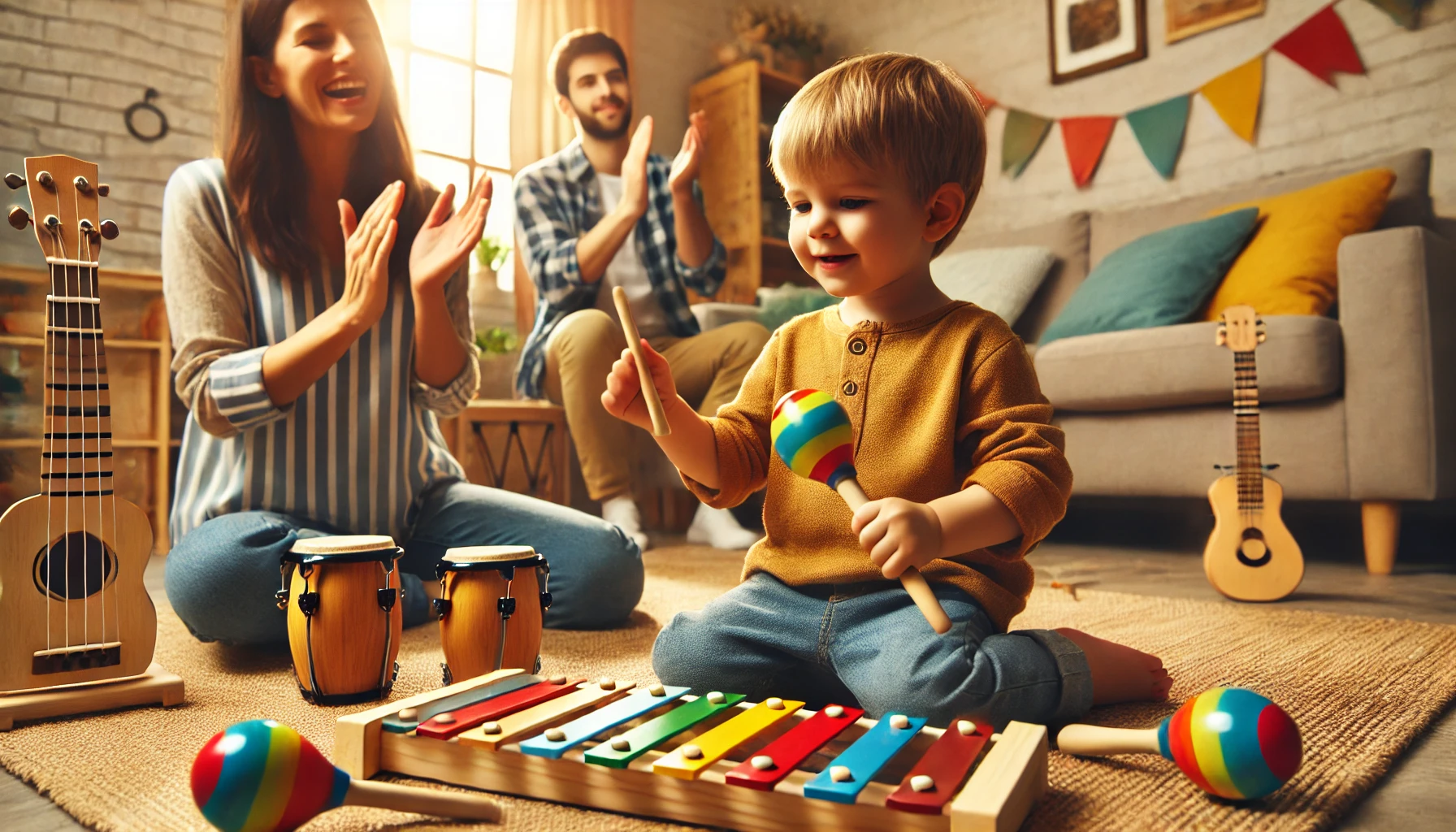Music plays a vital role in early childhood development. It helps improve language skills, enhances memory, boosts creativity, and provides an outlet for self-expression. Introducing music at home can be a fun and engaging way to support a child’s cognitive, emotional, and social growth. In this article, we’ll explore simple and enjoyable ways to make music a part of a child’s daily routine.
Why Music is Important for Children
- Boosts language and communication skills – Singing and rhyming help with pronunciation and vocabulary.
- Enhances memory and cognitive abilities – Learning lyrics and rhythms strengthens brain connections.
- Encourages creativity and self-expression – Music allows children to explore their emotions and imagination.
- Improves motor skills and coordination – Clapping, dancing, and playing instruments develop physical movement.
- Strengthens social skills – Group singing and musical games encourage cooperation and teamwork.
1. Sing Songs and Nursery Rhymes Together
Singing simple songs is one of the best ways to introduce music to children. Repetitive lyrics and rhymes help with language development while making learning fun.
Activity Idea:
- Sing classic nursery rhymes like “Twinkle, Twinkle, Little Star” or “Old MacDonald Had a Farm.”
- Add hand movements and gestures to reinforce meaning.
- Encourage your child to create their own silly songs.
What Kids Learn:
- Vocabulary and speech development
- Listening and comprehension skills
- Rhythm and coordination
2. Explore Musical Instruments
Introducing children to different musical instruments helps them understand sound, rhythm, and coordination.
Activity Idea:
- Give them simple instruments like maracas, tambourines, or xylophones.
- Make homemade instruments using household items (e.g., a shaker with rice in a bottle).
- Let them experiment with sounds by tapping on different objects.
What Kids Learn:
- Fine and gross motor skills
- Cause and effect through sound production
- Sensory exploration
3. Encourage Dancing and Movement to Music
Music and movement go hand in hand. Dancing helps develop coordination, balance, and self-expression.
Activity Idea:
- Play upbeat music and have a dance party.
- Try freeze dance—pause the music and have kids stop moving.
- Use scarves or ribbons for expressive movement.
What Kids Learn:
- Coordination and balance
- Expressing emotions through movement
- Understanding rhythm
4. Create a DIY Family Band
Making music together as a family fosters bonding and creativity.
Activity Idea:
- Assign each family member an instrument (real or homemade).
- Play along to a favorite song or create an original tune.
- Take turns being the “conductor” and leading the music.
What Kids Learn:
- Teamwork and cooperation
- Creativity in music-making
- Understanding musical roles
5. Use Music for Learning and Daily Routines
Music can make everyday activities more enjoyable and memorable.
Activity Idea:
- Sing a cleanup song while tidying up.
- Use music to signal transitions (e.g., a song for bath time).
- Make up songs to help remember letters, numbers, or days of the week.
What Kids Learn:
- Associating music with tasks
- Memory enhancement
- Routine-building skills
6. Introduce Children to Different Types of Music
Exposing kids to various musical genres helps them develop an appreciation for different cultures and sounds.
Activity Idea:
- Play classical music for relaxation.
- Introduce folk or traditional music from different countries.
- Let them explore pop, jazz, and instrumental music.
What Kids Learn:
- Musical diversity
- Cultural appreciation
- Emotional connection to music
7. Record and Play Back Their Voices
Hearing their own voices in recordings helps children gain confidence and enjoy experimenting with sounds.
Activity Idea:
- Use a phone or voice recorder to capture them singing.
- Let them create sound effects or narrate a story with music.
- Play back their recording and celebrate their creativity.
What Kids Learn:
- Self-confidence
- Auditory skills
- Self-expression
Final Thoughts
Introducing music to children at home is a simple yet powerful way to enhance their development. Whether through singing, dancing, or playing instruments, music helps kids learn, grow, and express themselves. The key is to make it fun, interactive, and a natural part of daily life.
